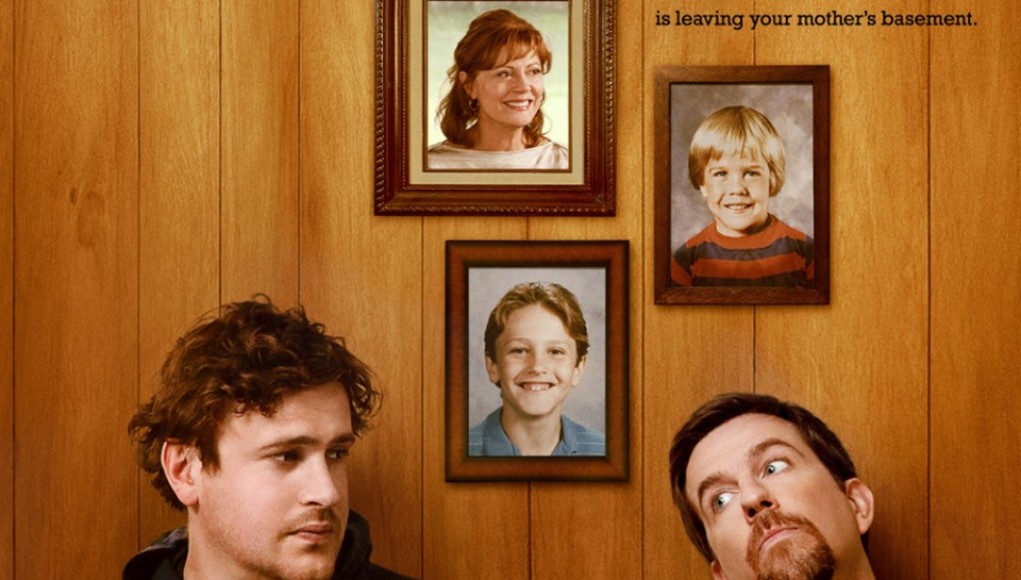The Duplass brothers have slowly but surely moved their way into the American independent sphere, first with films that made use of the DIY sentiments, and now with higher budgeted Indiewood releases. Jeff Who Lives at Home has many similarities to the Duplass’ previous effort Cyrus, but shows growth not only in the directors choice of material, but also how they execute the film.
Jeff (Jason Segel) lives in the basement of his mother’s home. After taking a bong hit, he answers a phone call where someone is looking for Kevin. He then receives a phone call from his mother, Sharon (Susan Sarandon), who asks him to perform one simple errand or risk being kicked out of the house. As Jeff begins his errand, he sees the name Kevin and meets people named Kevin nearly everywhere. Jeff’s brother, Pat (Ed Helms), is struggling through a failing marriage, and coincidentally, joins Jeff in a search for Kevin, or something.
Despite the brothers’ previous efforts of extremely low-budget films that made use of primitivism, Jeff Who Lives at Home seems to be a mid-way between retaining the style the two brothers developed over the past decade and the humble contemporary American independent movement. The DIY trend that exists, thanks to the the internet’s freedom of information, has given filmmakers an uncanny amount of liberty and chance to produce their own films at low budgets. This tendency has grown tremendously, as new, lighter, and cheaper technology is giving filmmakers a chance to tell American stories unlike any had been seen before. Furthermore, these films, refered to as mumblecore, specifically portray the late Generation X sentiments, and may even linger over into Generation Y. The film itself exhibits small remaining traces of this DIY tendency with quick zooms on the characters when in handheld mode.
Water is a particular symbol used throughout the film. The opening of the film has Jeff sitting on the toilet discussing the use of water in the film Signs. After Sharron hangs up her phone with Jeff and is aggravated at his irresponsibility and apathy, but she calms down when she glares at a picture of a waterfall on her desk. Pat faces a similar moment of serenity and water while watching a man surf on television. Later, the film passes back and forth between Sharon and her co-worker Carol (Rae Dawn Chong) sharing a moment in the office restroom and Jeff and Pat sitting in an empty bathtub in a hotel room. Towards the end of the film, water is used in all three of the character’s storylines, giving them a well need soaking of purification. Water is essential to the film because it connects this family of three when they are separated, but it also reunites them when they need each other most. Furthermore, water, and Jeff’s M. Night reference foreshadows the film’s climax.
The connection of water and this family of three brings up another issue that exists throughout the film, and most of the Duplass films. Fatherhood is an issue that returns in many of the Duplass films. Cyrus portrayed a coddled adult having difficulties with his mother starting a relationship with someone who is not his biological father. The Puffy Chair tells the tale of two brothers on a road trip to deliver their father a replica of his lay-z-boy chair. In Jeff Who Lives at Home, the father has long passed away, and his absence is hard to ignore when one brother fails to grow up, another’s marriage is failing, and the mother is yearning for love and affection.
The title alone exhibits the nature of our current generation; unemployed, or under-employed adults still living at home with their parents. Cyrus had a similar set-up. But here, we have Jeff given an ultimatum, he must complete a simple mission to retain his place in the basement.








